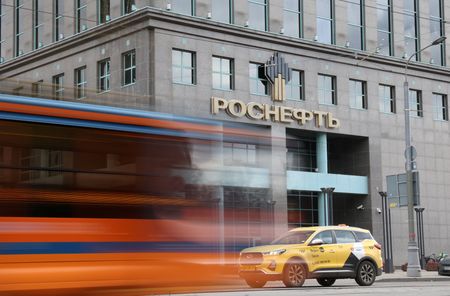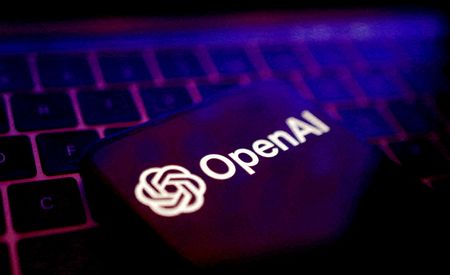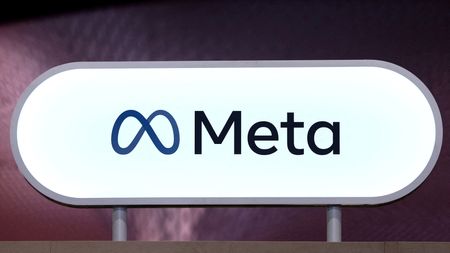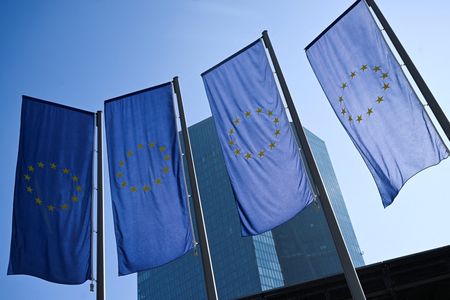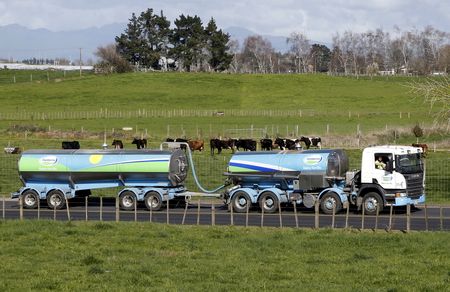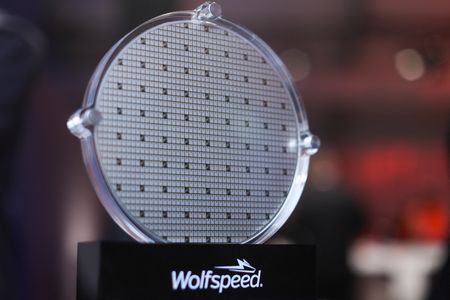By John O’Donnell and Christoph Steitz
BERLIN/FRANKFURT (Reuters) -U.S. sanctions on Russian oil producer Rosneft have rekindled discussions in Germany about nationalising the company’s business there, including a refinery that Berlin depends on for most of its fuel, two sources familiar with the talks told Reuters.
The situation highlights the complex web linking Germany with Russia, which supplied Europe’s industrial powerhouse with energy in the decades leading up to the war in Ukraine.
The U.S. Treasury said on Wednesday it had issued a licence exempting Rosneft’s German arm from the U.S. sanctions until April 2026.
Securing a permanent exemption remains Berlin’s preferred option, but German officials are also examining potentially seizing the operations and selling them to a foreign investor, the two people said.
A spokesperson for the economy ministry said it had received a letter from the United States that would serve as a “temporary solution”.
Rosneft’s German arm owns a controlling stake in the Schwedt oil refinery which supplies most of Berlin’s fuel, including to its airport, petrol to pumps across eastern Germany and key ingredients to the local chemicals industry.
It also has stakes in the MiRo and Bayernoil refineries.
These assets were placed in a trusteeship giving the German government control in 2022 following Moscow’s invasion of Ukraine, which rocked Germany’s decades-long energy ties with Russia.
The trusteeship arrangement is renewed every six months but could be overturned in court because, with each renewal, the legal basis for what was supposed to be a temporary, emergency measure is examined.
So far, Berlin has shied away from seizing Rosneft’s local assets due to concerns about having to pay compensation to Moscow.
MULTI-BILLION-DOLLAR BUSINESS
Russian media have put the value of Rosneft’s German assets at around $7 billion, though one of the two sources said the true value may be less than half of that.Moscow has warned Europe against any seizure of its property. German companies with factories and other investments in Russia could bear the brunt of any response from the Kremlin.
Rosneft has been trying to sell the business since March 2024, to no avail. It did not respond to a request for comment on Wednesday.
Michael Kellner, a Green Party lawmaker in Germany’s parliament who worked in the last coalition government, overseeing Rosneft, urged the government to nationalise the business.
“It is systemically important for Germany,” Kellner told Reuters. “The government needs to nationalise Rosneft’s business in Germany in order to have certainty over its future.”
Kellner said he had wanted to nationalise the business while in government and that Qatar and Kazakhstan had signaled interest in buying it in 2024.
It is unclear, however, whether those countries were still interested.
Germany used to buy oil directly from Russia. Rosneft in Germany now buys oil from Kazakhstan. However, Russia controls the pipeline used to deliver it.
(Reporting by John O’Donnell and Christoph Steitz. Additional reporting by Holger Hansen in Berlin; Editing by Elisa Martinuzzi and Emelia Sithole-Matarise)

